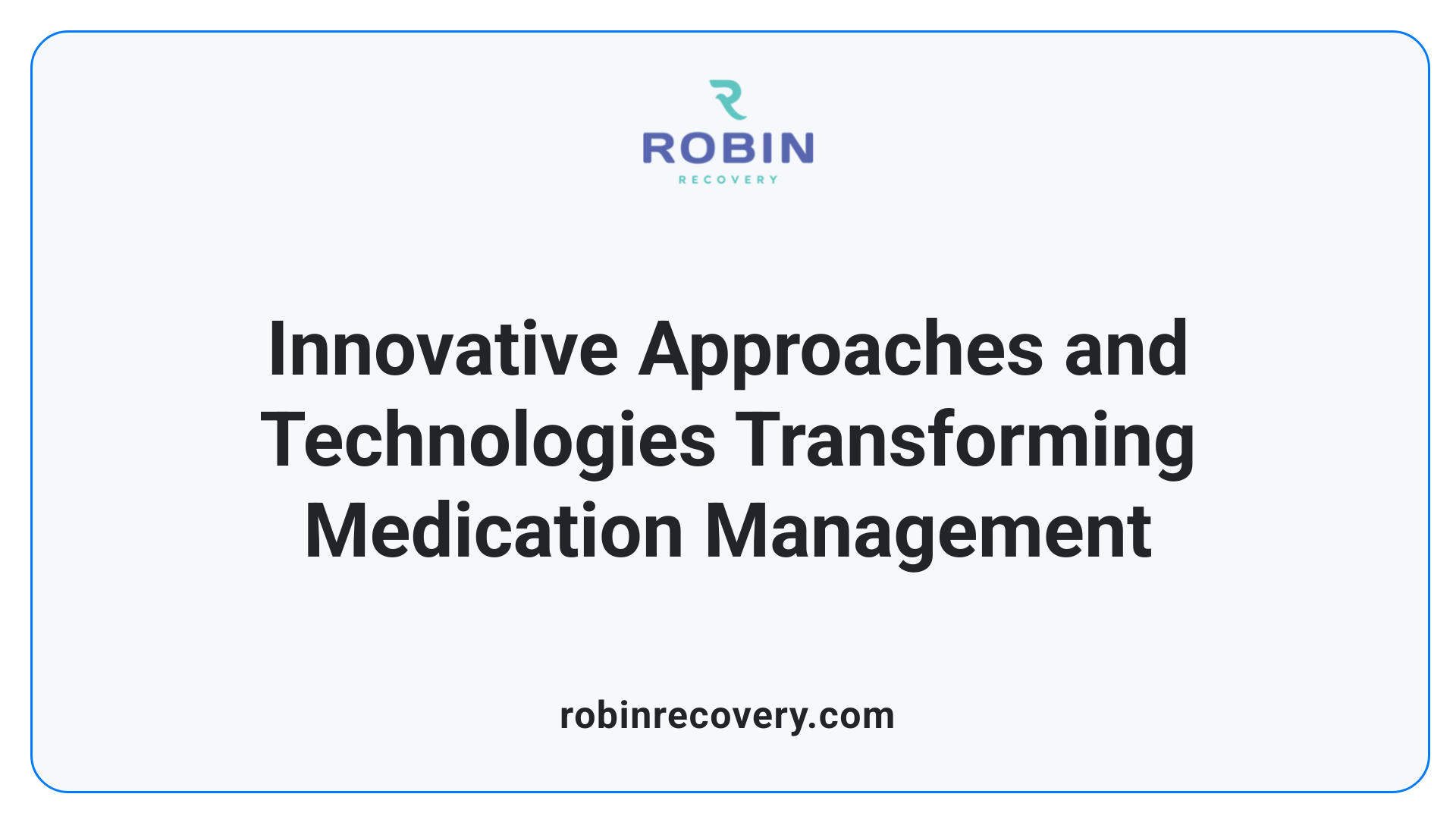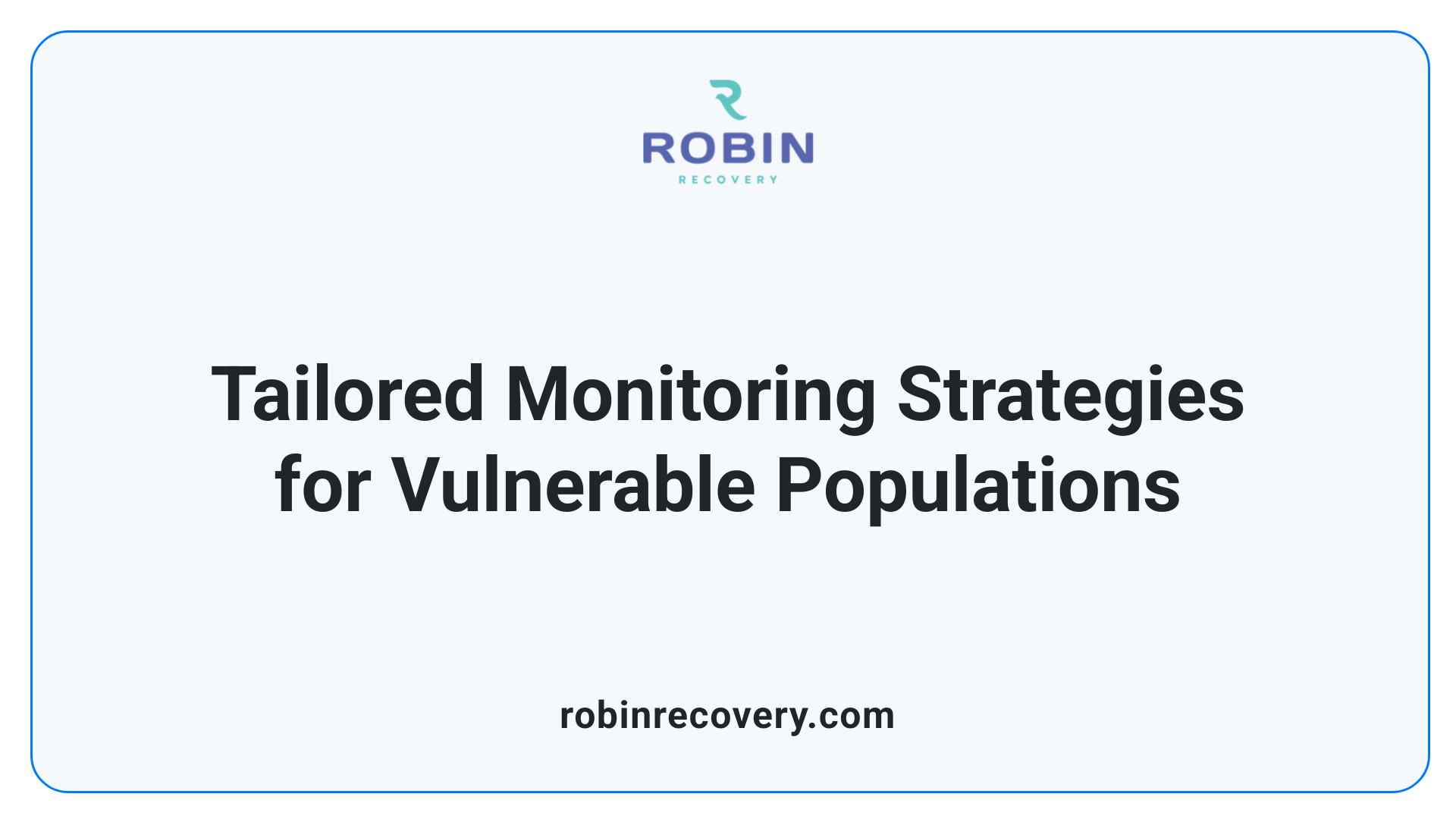The Importance of Monitoring Progress in Medication Management

Understanding the Critical Role of Monitoring in Medication Management
Medication management is a vital component of healthcare that extends beyond the initial prescription. It encompasses continuous monitoring of medication use to ensure safety, efficacy, and adherence. As healthcare systems evolve and adopt advanced technologies, the importance of diligent monitoring becomes increasingly clear, especially for vulnerable populations such as older adults, mental health patients, and those in addiction recovery. This article explores the multifaceted strategies, benefits, and innovations that underline the significance of monitoring progress in medication management.
Defining the Purpose and Scope of Medication Monitoring

What is the purpose of drug monitoring?
Drug monitoring, especially therapeutic drug monitoring (TDM), focuses on measuring the levels of specific medications in a patient's bloodstream. This practice is vital for drugs that have a narrow therapeutic window, meaning the difference between an effective dose and a toxic dose is small.
The primary goal of TDM is to ensure medication levels stay within a safe and effective range. Regular blood tests help healthcare providers adjust doses as needed, tailoring treatment to each individual's unique metabolism and response.
Beyond safety, monitoring helps identify problems such as patients not taking their medications properly, interactions between drugs, or changes in health status that could influence how a medication works. Ultimately, TDM aims to personalize medication therapy, maximize benefits, and minimize risks.
Why is medication monitoring important?
Monitoring medications is crucial for achieving optimal health outcomes. It ensures patients adhere to prescribed regimens, taking the right dose at the right time.
By tracking medication levels and patient responses, healthcare professionals can evaluate whether the treatment is effective or if adjustments are necessary.
Proper monitoring also plays a significant role in preventing adverse effects and drug interactions, which could worsen health or cause new problems.
Tools like medication packaging, reminder apps, and regular check-ins support adherence and safety.
In summary, medication monitoring protects patients’ health, enhances treatment efficacy, and reduces healthcare costs by preventing complications, hospital visits, and readmissions.
The Significance of Monitoring in Patient Safety and Treatment Success

Why is medication monitoring important?
Medication monitoring is crucial for ensuring patients take their prescribed medications correctly, at proper doses and times. This practice helps healthcare providers evaluate whether treatments are working and guides necessary adjustments to improve outcomes. Proper monitoring can prevent medication errors, reduce side effects, and avoid health complications resulting from incorrect usage or drug interactions.
Effective monitoring enhances safety by catching adverse effects early and supports personalized care, especially for individuals with complex health needs or co-morbidities. It encourages active patient participation, empowering individuals to better understand their medications, adhere consistently, and manage their health effectively.
Tools like compliance packaging, mobile apps such as MyDoses, and regular check-ins with healthcare teams make medication management more reliable. These strategies contribute to fewer hospital readmissions and lower healthcare costs, demonstrating how diligent monitoring is vital for safe, effective, and personalized treatment.
Effective Strategies and Technological Innovations in Medication Monitoring

What strategies and methods are used for effective medication monitoring?
Effective medication monitoring combines several approaches and emerging technologies to promote safe and proper use of medications. Practical strategies include organizing medications with pill organizers or adherence packs to prevent missed doses. Maintaining an up-to-date medication list helps healthcare providers review and reconcile treatments efficiently.
Modern digital tools like reminder apps—such as DosePacker’s DoseMinder and MyDoses App—help patients remember to take medications on time. Electronic health records (EHRs) and clinical decision support systems (CDSS) facilitate communication between care teams and ensure prescriptions are appropriate. Advanced methods include electronic pill bottles and ingestible sensors that monitor adherence in real-time.
Systematic review approaches, including regular follow-ups and non-punitive error reporting frameworks, help identify medication errors before they lead to adverse effects. Patient and caregiver education boosts understanding and motivation for adherence. Personalization of care plans and effective team communication foster a culture of safety and continuous improvement in medication management. Collectively, these practices enhance treatment efficacy, reduce errors, and support long-term health outcomes.
How does digital technology enhance medication adherence and safety?
Digital innovations have revolutionized medication adherence and safety by offering precise, real-time monitoring capabilities. Electronic devices such as smart pill bottles and ingestible sensors collect adherence data continuously, allowing healthcare providers to assess whether patients are following their regimens accurately.
Remote monitoring tools and AI-powered analytics analyze adherence trends and identify potential issues early. These technologies enable personalized interventions, including automated reminders and tailored feedback, which address individual barriers like forgetfulness or misunderstanding.
Educational content delivered via digital platforms increases patients’ understanding of medications’ purpose and possible side effects, empowering them to participate actively in their care. Telehealth services enable ongoing virtual consultations, making it easier to adjust treatments promptly and coordinate care. Overall, digital tools improve the accuracy, timeliness, and proactive management of medication use, reducing the risk of adverse events and enhancing therapeutic outcomes.
Technology/Method Function Benefits DosePacker’s DoseMinder Reminder system Ensures timely medication intake MyDoses App Digital medication tracking Improves adherence and patient engagement Electronic Health Records Data sharing and review Facilitates coordinated care Ingestible Sensors Real-time adherence detection Provides verified medication intake data Automated Reminders Timely notifications Reduces missed doses Telehealth Platforms Remote consultations Maintains continuous care and adjustments
Exploring these innovative tools, alongside systematic review practices, helps create a safer, more effective medication management environment, ultimately leading to better health outcomes.
Monitoring in Special Populations: Older Adults, Mental Health, and Addiction Recovery

How does medication monitoring benefit specific populations, such as older adults or mental health patients?
Monitoring medications in vulnerable groups like older adults and mental health patients is essential for safe and effective treatment. In older adults, ongoing assessment helps to minimize medication errors, reduce the risk of adverse drug reactions, and manage complex medication regimens that often involve multiple drugs, a situation known as polypharmacy. Tools such as medication reconciliation and regular clinical evaluations support safe prescribing practices.
For mental health patients, systematic monitoring improves symptom control and supports medication adherence. Regular check-ins, side effect assessments, and early detection of issues help in adjusting treatment plans promptly. Tailored approaches, including education about medications and managing side effects, are vital for addressing unique challenges like cognitive impairments or medication intolerance.
Overall, personalized medication monitoring promotes better health outcomes by ensuring that treatment is aligned with individual needs, reducing risks, and enhancing the quality of life for these populations.
What strategies are effective for medication management in elderly and mentally ill populations?
Effective medication management strategies for elderly and mentally ill populations encompass several best practices. Simplifying medication regimens through dosage adjustments and reduced frequency can improve adherence. Involving caregivers in medication administration and monitoring ensures support, especially when cognitive impairments are present.
Regular medication reviews and reconciliation are crucial for preventing errors and identifying drug interactions or duplications. Leveraging technology, such as electronic reminders, apps, and remote monitoring tools, can facilitate adherence and timely refills.
Educational efforts that clarify medication purpose, potential side effects, and interaction risks empower patients and caregivers to participate actively in treatment plans. For older adults, addressing issues like forgetfulness or difficulty swallowing is critical. For mental health patients, routine symptom monitoring and close collaboration among healthcare providers enhance treatment precision.
By integrating these strategies, healthcare providers can significantly improve safety, optimize therapeutic outcomes, and improve overall well-being in these vulnerable groups.
Best Practices and Future Directions in Medication Oversight

What are best practices for healthcare providers and patients in medication oversight?
Effective medication oversight relies on a combination of careful review, collaboration, and technology. Healthcare providers should perform regular medication reviews and reconciliation at every patient encounter to catch discrepancies and prevent adverse reactions. Using electronic health records (EHRs) and clinical decision support tools helps streamline this process, reduce medication errors, and ensure safe prescribing.
Patients can support oversight by adhering to prescribed schedules, using pill organizers, and tracking their medication intake through digital apps or reminders. Clear communication between patients and providers is vital. Sharing comprehensive medication lists—including prescriptions, over-the-counter drugs, vitamins, and supplements—facilitates better coordinated care.
Proper medication storage and safe disposal of expired drugs minimize risks of accidental poisoning or misuse. Patient education about recognizing side effects and drug interactions encourages active participation in health management.
Healthcare organizations should implement structured safety protocols, such as double-checking high-alert medications and following established guidelines. Training staff regularly keeps everyone updated on best practices.
Engaging patients in decision-making and fostering a safety-focused culture enhances overall medication management. These best practices not only improve safety but also promote better health outcomes and patient satisfaction.
The Path Forward in Medication Monitoring and Safety
As healthcare continues to embrace technological advancements and patient-centered approaches, the importance of consistent and effective monitoring in medication management cannot be overstated. Regular oversight ensures optimal therapy, minimizes risks, and enhances health outcomes. Investing in innovative tools, staff training, and patient engagement strategies will be pivotal in advancing medication safety and efficacy. Ultimately, comprehensive monitoring practices are central to delivering high-quality, safe, and effective healthcare for all populations, ensuring medications fulfill their promise of improved health and well-being.
References
- The Importance of Medication Monitoring: What You Need to Know
- The Importance of Drug Monitoring in Primary Care - MedCentral
- medication monitoring and adverse drug events in older adults - PMC
- The Importance of Medical Monitoring in Mental Health Treatment
- How Medication Management is Improving Patient Care | SEPSC
- Monitoring for adverse drug reactions - PMC - NCBI
- Why Monitoring Medication is Critical for Mental Health
- Medication Monitoring in Recovery Support: A Doctor's Approach
- Monitoring Drug Therapy: Importance, Methods, and Challenges
